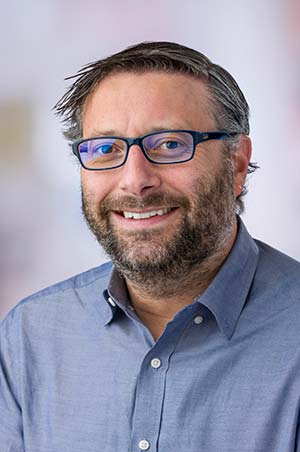Jarrod Dudakov, PhD
Associate Professor
Translational Science and Therapeutics Division, Fred Hutch
Member
Immunotherapy Integrated Research Center (IIRC), Fred Hutch
Dr. Jarrod Dudakov studies how the immune system naturally recovers after damage, such as from common cancer therapies like chemotherapy and radiation. He uses mouse models to study the thymus, the organ in which specialized immune cells called T cells mature. His goal is to apply his findings to develop new therapies to promote immunity in cancer patients who receive thymus-damaging treatments and/or to boost the effectiveness of vaccines in people whose immune function is compromised by aging or disease.
Other Appointments & Affiliations
Affiliate Assistant Professor, Department of Immunology, University of WashingtonAffiliate Assistant Professor
Department of Immunology, University of Washington
Education
Memorial Sloan Kettering Cancer Center; Senior Research Scientist; 2013-2016
Memorial Sloan Kettering Cancer Center; Postdoctoral Fellowship; 2010-2013
Monash University; Postdoctoral Fellowship; 2009-2010
Monash University; PhD; Immunology/Stem Cell Biology; 2009
Monash University; BS (Hons); Immunology/Biochemistry; 2003
Monash University; BA; Politics; 2002
Research Interests
The Dudakov Lab is working to understand the mechanisms underlying natural thymic regeneration so that new therapies might be developed to enhance T cell immunity, as needed. Such interventions could be quite valuable for cancer patients who undergo thymus-damaging radiation treatments and/or chemotherapy, including the generally aggressive “conditioning” required before hematopoietic stem cell transplantation. Targeted thymic regeneration could also significantly benefit individuals with T cell deficiencies due to aging, genetic causes (such as severe combined immunodeficiency), infectious diseases (such as HIV) or radiation injury (such as from a nuclear accident).
Current Projects
Dr. Dudakov’s ongoing research focuses on understanding the molecular processes underlying thymic and immune regeneration so that new findings can be clinically applied to boost immune function. He has recently identified two such pathways involving the secreted protein factors, interleukin-22 and BMP4. The Dudakov Lab is currently working to identify alternate pathways that are also important for natural thymic regeneration and to understand how these pathways are triggered and interact during tissue repair.
"Ultimately the goal is to say, ‘If we understand how it naturally regenerates itself, can we take those processes and exploit them in one way or another to generate novel and innovative therapies to boost thymic function?"
— Dr. Jarrod Dudakov
